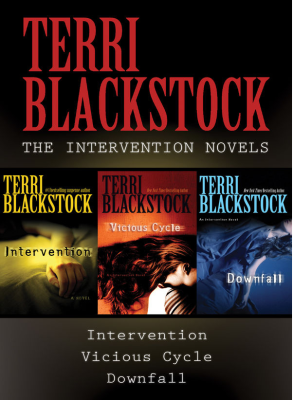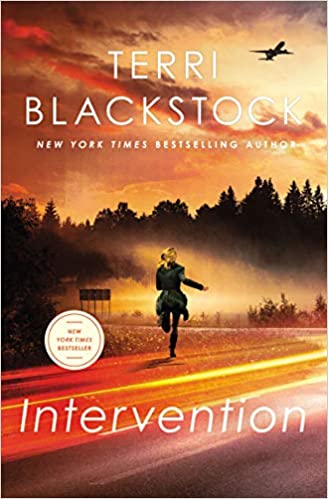For the Families of Addicts
a) Your instinct will be to keep it secret, but I encourage you to share your struggles with people who can pray for you and support you, and also pray for your child.
b) Once you share it, you’ll find that others will tell you that they’re going through the same thing. Gather those people into a support group and meet regularly to support and encourage each other, and to pray corporately for your children.
c) Anybody can start a support group. All you need is a few people, a promise to keep things confidential, and a private place to meet.
d) Realize that the more you rescue your child, the fewer reasons they have to get sober. Someone once told me, “Don’t deprive your child of a face to face encounter with God by rescuing her from her pain.”
e) The stress of dealing with an addict can have a physical toll on you. Take care of yourself, and give yourself and your family members permission to be happy and move on with your lives, even if your addict is bent on self-destruction. Years of depression and anxiety will do as much damage to you as the drugs are doing to your loved one.
f) Sometimes you have to turn your back on your child in hopes of precipitating change. God had prodigal children, too, and often He had to let them deal with the consequences of their choices, in hopes that it would bring them back to Him.
g) Know that God is working in your child’s life even when you’re not. As you pray for your child, He’s speaking words into their lives, providing people to help them, and working in ways that you cannot see. He loves them even more than you do.
h) When you have to temporarily turn your back on your child, give them some phone numbers they can call to get help when they finally want it—shelters, rehabs, etc.
i) Get counseling yourself.
j) Pray individually and corporately for your child. God will use this in your life to change you.
k) Trust that someday, God will use all of this in your life and in the life of your child. 2 Corinthians 1:3-4 says: “Blessed be the God and Father of our Lord Jesus Christ, the Father of mercies and God of all comfort; who comforts us in all our affliction so that we may be able to comfort those who are in any affliction with the comfort with which we ourselves are comforted by God.”
Choosing a Rehab for Your Loved One
a) Don’t be fooled by dishonest marketing. Often when you think you’re calling a local facility, your call really goes to a California rehab where they convince you that they’re the only ones who can help your loved one, for a tremendous price. Many of these dishonest treatment centers will come up when you google “Christian rehab,” when they are not Christian programs at all. They have many shrewd marketing techniques that leave you confused and financially drained. Slow down and take the time to get recommendations from people you trust.
b) Before you choose a rehab, ask what their policy is on medications. How long do they medicate clients, what do they use for withdrawals and anxiety, etc. Some of the expensive rehabs have doctors/psychiatrists on staff who keep them doped up the whole time they’re there. When they get out, they’re no better equipped to deal with their addictions than they were before. In my family’s experience, sometimes they even have to be detoxed from new medications after they’re released.
c) I’ve found that the free rehabs (or those with a small fee) are often the best because they’re not motivated by money. Rehabs that are supported by churches or Christian groups are the ones that are often run by people who love God and feel that this is their ministry. They really want to help people start over, even if they can’t afford to pay a penny.
d) Don’t misunderstand. I’m not saying that all of the expensive rehabs are bad, or that they don’t have good people working there. But please don’t assume that the more expensive they are, the better they are.
e) Never choose a rehab that mixes men and women. People often fall in love while they’re in treatment, and that’s a recipe for disaster. Too often, they’re distracted by the opposite sex, and it keeps them from focusing on their recovery.
f) Ask the admissions counselor who they have working on the staff. If they have people who are ninety-days sober in positions of power in the facility, that’s kind of like putting the fox in charge of the hen-house.
g) An out-patient program or even a month-long program is not sufficient to help someone with severe addictions. In our experience, nothing less than 90 days would be effective, and there are some great programs that are six months or a year. These have excellent success rates.
h) To find the best rehabs in your area, ask your pastor or find a church with a vibrant Celebrate Recovery program. Those leaders will know of effective programs near you.
Signs of Addiction
a) Not bathing or changing clothes or brushing teeth; doesn’t care how he/she looks
b) Changes in sleep habits—either up for days at a time, or sleeping much more than usual
c) You find things (pills, needles, spoons) that they explain by saying they belong to their friends
d) Sudden weight loss
e) Packages coming, and they won’t show you the contents. They may be ordering prescription pills online.
f) They have dents all over their cars, because they’re running into things or having way too many accidents
g) Your credit cards go missing, or money is taken from your account or things disappear. It may mean that your addict is trying to raise money for drugs.
h) They can’t manage their money and have all sorts of excuses for not being able to pay their bills, even though they may have an income
i) Inexplicable changes in their personality—Outbursts of anger, manipulation, talking way too much, etc.
j) Pupils are abnormally constricted or dilated
k) Their health and physical appearance may change—excessive vomiting or sores on their skin, etc
Resources
Sober Boots, Blog about recovery from alcoholism by Heather Kopp
Boundaries, by Dr. Henry Cloud and Dr. John Townsend, Zondervan, 2001.
Hit By a Ton of Bricks, by John Vawter, Family Life Publishing, 2003.
Moments for Families With Prodigals, by Dr. Robert J. Morgan, NavPress Publishing Group, 2003.
Praying Prodigals Home, by Quin Sherer and Ruthanne Garlock, Regal Books, 1999.
Prodigals and Those Who Love Them, by Ruth Bell Graham, Baker Books, 1999.
Red Sea Rules, by Robert J. Morgan, Thomas Nelson, 2001.
Setting Boundaries with Your Adult Children: Six Steps to Hope and Healing for Struggling Parents, by Allison Bottke, Harvest House Publishers, 2008. http://www.settingboundaries.com/
You’re Not Alone web site (for families dealing with addicted loves ones), http://www.notalone.org/
The Book and Bunk 51 by Bette Hammang (the true story of a a woman who was addicted for decades and broke free from her bondage)
Hope from God’s Word
Isaiah 50:2:
“Is My hand so short that it cannot ransom? Or have I no power to deliver?”
Isaiah 43:18-19 [The Message]:
“Forget about what’s happened; don’t keep going over old history. Be alert, be present. I’m about to do something brand-new. It’s bursting out! Don’t you see it?”
Isaiah 49:24-25:
Can plunder be taken from warriors, or captives rescued from the fierce? But this is what the Lord says: “Yes, captives will be taken from warriors, and plunder retrieved from the fierce. I will contend with those who contend with you, and your children I will save.”
The Intervention Series
I wrote the Intervention Series of novels because my own journey with a family member on drugs was so painful, and I learned so much. No, we didn’t have a murder in our personal story, but the journey the Covingtons endure in that series was emotionally very similar to ours. I’ve been the mother who suffered for her child, who prayed for deliverance, who waited for the other shoe to drop. I’ve been the one to go into scary places I had no place being. I’ve known the crushing disappointment that no matter how hard I tried or how clever my schemes, I couldn’t save her from destruction. Only God could. But first, she had to want Him to.
Telling the story of Emily, Barbara and Lance was therapeutic for me. It helped me to take this thing called addiction out and look at it from every angle. And I hope it’s been therapeutic for my readers, too. Especially those who have taken that same journey.
The Intervention Series has been a success by the world’s standards. New York Times best-sellers, awards, and great reviews have been markers that have helped tremendously. But it’s the letters I get from family members and addicts who’ve been touched and changed by Intervention, Vicious Cycle, and Downfall that are my greatest markers for success. I know the books are helping people. I know God is using them to comfort families and remind them that they’re not alone. He’s using them to give hope to addicts and their suffering loved ones. He’s using them to show people the way out.




